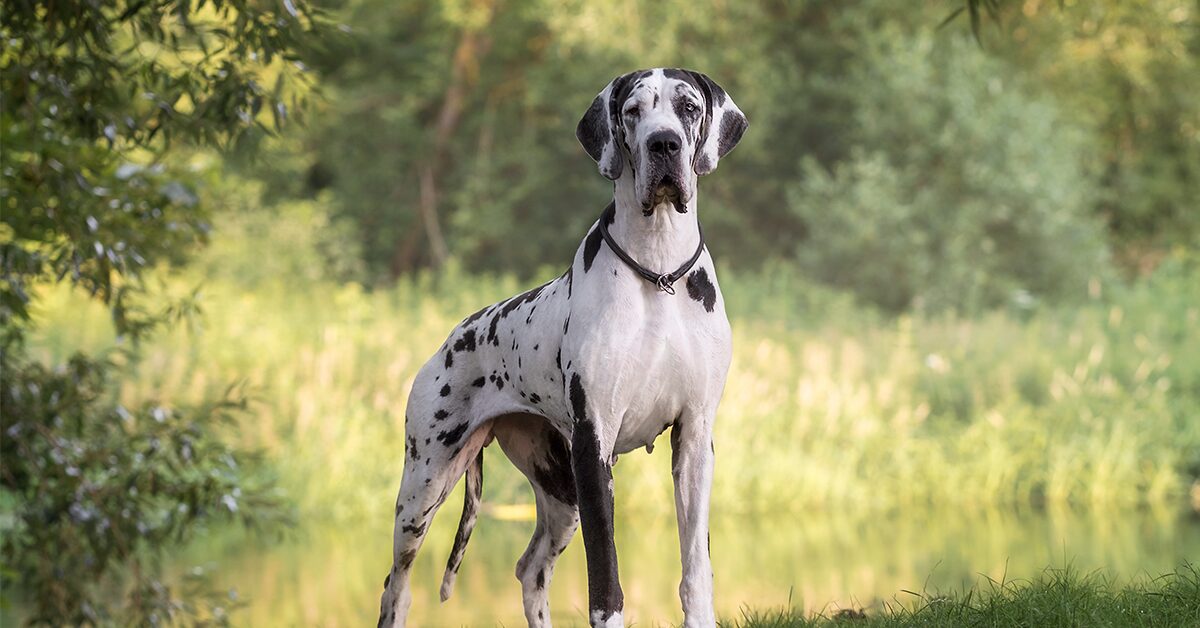
Basenji is an African hunting dog. It was bred from central Africa stock. The Federation Cynologique Internationale places this breed in the primitive and Spitz categories. This breed is known for its unique yodel sound. If you're interested in buying a Basenji, it's important to learn more about its origins and other characteristics.
Basenji's origins
Basenji is a breed of hound with an independent and intelligent personality. This breed loves to be active and will run, sniff, and play with its owner. Basenjis can have red, tri-colored, or white coats. These dogs are also known as "mischievous dogs."
Basenjis do bark sometimes, but some others are quieter. In fact, Basenjis tend to be less vocal than other breeds. They also have an excellent watchdog instinct. Although this breed does not bark very often, they do make various other noises, such as meowing and whimpering. Basenjis make great pets for families with older children.
Basenji-like dogs have been discovered in 6,000-year-old cave paintings in Libya. They are also found with Pygmy tribes in the Congo Basin and South Sudan. The Egyptians also had Basenjis depicted on relics dating back to 3000 BC. These relics show dogs with curled tails as well as pricked ears.
Characteristics

Another Basenji characteristic is its ability to become very independent. Although this is a great trait, it can lead to the dog becoming quite isolated at times. Basenjis have a high intelligence level and are more difficult to train than other breeds. Basenjis have high energy levels so they can become bored easily. This breed has been around for a long time and can be found on ancient artifacts from Egypt and Babylon.
The Basenji is independent and very loyal, but they are also very loving and loyal. They are smart and intelligent, which is why so many people love them. Basenjis are the only breed that will let themselves lick their own skin, which is a rare trait among other breeds. Contrary to other breeds, the Basenji won't wipe their paws on your favourite chair or clothing. As such, they're perfect for owners who want a clean and sanitary home.
Take Care
Basenjis are generally healthy but can experience a variety health problems. Basenjis are at risk for hypothyroidism. Hypothyroidism refers to a low thyroid hormone level. The symptoms include dry skin and increased susceptibility skin diseases. It can cause aggression, fearfulness, and an increase of body weight. Doctors will evaluate the behavior of the dog and determine whether hypothyroidism is present. Replacement hormones can be administered if necessary if the dog has hypothyroidism.
Basenjis' annual vet bills can run anywhere from $500 to $1500. So it is important to plan ahead. A pet insurance plan can help owners deal with unexpected costs. There are a variety of pet insurance plans available for Basenjis, and comparing plans is a good way to find a policy that best suits your needs.
Training
Training a basenji can be a challenging task. This breed is known for being energetic and can be difficult to train. Basenjis should become accustomed to their owner's authority. When given the correct commands, however, Basenjis will still show signs of obedience. These are some ways to train your dog. Be sure to pay attention and give positive reinforcement. It is also important to reward your dog whenever it obeys a command.

Basenjis are highly sensitive dogs, so it is important to use positive training methods. To teach your dog a new trick, you can use clickers, lures, or positive reinforcement. While training your dog, it is important to avoid using force, as force may lead to aggressive behavior.
Exercise
Your Basenji can bond with you by exercising. There are many options to get your dog moving. You can take your Basenji for a walk or jog. You should dress appropriately to keep your dog from overheating. You can also try walking laps around a local pond. This is a great way to get your Basenji the extra exercise it needs, without the risk of him wandering off.
You can give your Basenji exercise by scheduling two 30-minute sessions per week. You can do this by running, walking, or in a supervised area. Basenjis are highly active dogs and need physical and mental stimulation. Running is a popular sport for dogs.
FAQ
Do I decide to get a dog or a cat?
This depends on you. Some people are more fond of kittens than they are puppies.
However, puppies tend be more active and playful. Kittens sleep a lot, and they are very gentle.
Both types require a lot from their owners. They will get older quickly and need to be taken care of.
They will also need to be checked on a regular basis. So, you'll need to spend time taking them to the vet.
What are your considerations when choosing a pet to own?
You must first consider what kind lifestyle you wish for yourself, your family, and your friends. Do you have children? How many children do you have? Are they currently over 50? Are there any dietary restrictions?
Are you concerned about allergies? Is there any additional information you need about your pet?
These questions will help you decide if you want an active companion, a quiet pet dog, a cat that is house-trained, or a fish tank with tropical fish.
Adopting a puppy is a great idea. Make sure to visit a rescue or shelter group so you can get to know the animals and feel at ease with them.
You should also check to see if the animal is vaccinated for rabies and other diseases.
Next, check with the owner to see if he/she will take care your animal while you're on vacation. This will allow you to leave your pet at home and not worry about it.
Remember that pets are part of the family, and you shouldn't adopt one unless you really like him or her!
What is pet insurance?
Pet Insurance provides financial protection when your pet is injured or becomes sick. It also covers routine care such as vaccinations or spaying/neutering.
In addition, it pays for emergency treatment if your pet gets into an accident or becomes ill.
There are two types to pet insurance
-
Catastrophic Insurance - This insurance covers medical expenses for your cat if it sustains severe injuries.
-
Non-catastrophic: This covers routine vet costs such as microchips and spays/neuters.
Some companies offer both catastrophic and non-catastrophic coverage. Others may offer one or both.
To cover these costs you will need to pay a monthly Premium. The amount will vary depending on how much money you spend on pet care.
This insurance can cost you a lot depending on which company you choose. Do your research before purchasing.
Many companies offer discounts for multiple policies.
You can transfer your pet insurance plan to another company if you are already insured.
If you do not want to buy pet insurance, you'll need to make all of the payments.
There are still ways you can save money. You can ask your veterinarian about discounts.
You might be disregarded if your pet is seen often.
If you prefer to pay for a pet, there are many options.
No matter which type of insurance you choose, it is important to read all the fine print.
It will tell you exactly what your coverage is worth. If you don’t understand something, contact an insurer immediately.
There are three things you should consider before buying a cat.
Before you decide to buy a cat, be sure to answer these questions.
-
Are there any health concerns for the cat?
-
Is it possible for the cat to eat all my food.
-
Is it because I am a lover of cats or do you just want a pet to play with?
What are the signs that my dog could be sick?
There are many symptoms that indicate that your dog is sick. Some symptoms are:
-
Vomiting
-
Diarrhea
-
Lethargy
-
Fever
-
Weight loss
-
A decreased appetite
-
Coughing
-
Difficulty in breathing
-
Bleeding from below the nose
-
In stool or urine, blood can be found
These are just a few examples. Your vet will know exactly what to look for.
How much should I pay for a pet?
The best rule of thumb is to budget $200-$300 each month.
It all depends on where you are located. You'd spend approximately $350 per calendar month in New York City.
In rural areas, however you may only need $100 per calendar month.
It's important to remember that you should buy quality items such as a collar, leash, toys, etc.
Consider purchasing a crate for your pet. This will ensure your pet is safe while being transported.
What are the responsibilities that pet owners have?
A pet owner must be devoted to their pet. They should provide for their basic necessities such as shelter, water, food, and clothing.
They must teach them proper behavior. Pet owners should not neglect their pet.
He should also be responsible enough and able to take care of it.
Statistics
- Pet insurance helps pay for your pet's medical care, with many policies covering up to 90 percent of your vet bills. (money.com)
- A 5% affiliation discount may apply to individuals who belong to select military, law enforcement, and service animal training organizations that have a relationship with Nationwide. (usnews.com)
- * Monthly costs are for a 1-year-old female mixed-breed dog and a male domestic shorthair cat less than a year old, respectively, in excellent health residing in Texas, with a $500 annual deductible, $5,000 annual benefit limit, and 90% reimbursement rate. (usnews.com)
- It's among a relatively few companies that provide policies with a full (100%) coverage option, meaning you are not responsible for any co-payment of bills. (money.com)
- In fact, according to ASPCA, first-year expenses can sum up to nearly $2,000. (petplay.com)
External Links
How To
How to train a cat for a pet
To properly train your cat, first you must understand his/her nature. Cats are intelligent and have complex brains. They are intelligent animals, and they are also highly emotional creatures. It is important to understand your cat's personality in order to ensure that he/she behaves well. You need to be able to manage your cat properly.
It is important for cats to be independent. This means they don't like being told "no". You may be angry if they tell you "no". If your cat does something wrong, don't force them to do it. While your cat is dependent on you for affection and love, this does not mean that you can ignore him/her.
If your cat is having trouble, you can try to help them. Talk to your cat calmly. Do not yell at him/her. It can make your cat feel awful if you yell at her/him. Also, you cannot force your cat to eat. Sometimes, your cat won't eat. It is a good idea to treat your pet when this happens. You should not give them too many treats as it could lead to overeating.
You should always keep your cat clean. It is important to clean your cat daily. To clean dirt and dust off your cat, you can use a wet cloth. Check to make sure your cat is free of fleas. Flea bites can cause irritation to the skin and allergies. If you notice any signs of fleas, then you should use a special shampoo to remove them.
Cats are social animals. They are social animals and love to spend time together. This is why it's important to spend time with your cat. Play with him/her. Feed him/her. Cuddle him/her. These activities will make your cat smile.
Training your cat should be done early. Begin training your kitten at two weeks of age. Your kitten should be around three months old to start training him/her. Your cat will be fully grown at this age and ready to learn new skills.
When teaching your cat tricks, you should go through each step step by step. To teach your cat how to sit down, first show the chair. Then, you should say "sit" and reward him/her with a treat. You can repeat these steps until the cat understands.
Remember that cats are smart animals. They are able to figure out how tasks should be performed. They require patience and persistence. Do not expect your cat will be able to master any task in a flash. Allow your cat to practice for a while before you give up.
Never forget that cats are wild animals. Cats are curious and playful by nature. If your cat is free to roam, he/she could accidentally knock over things. To avoid accidents, you should place your cat in a safe area where he/she won't hurt himself/herself.